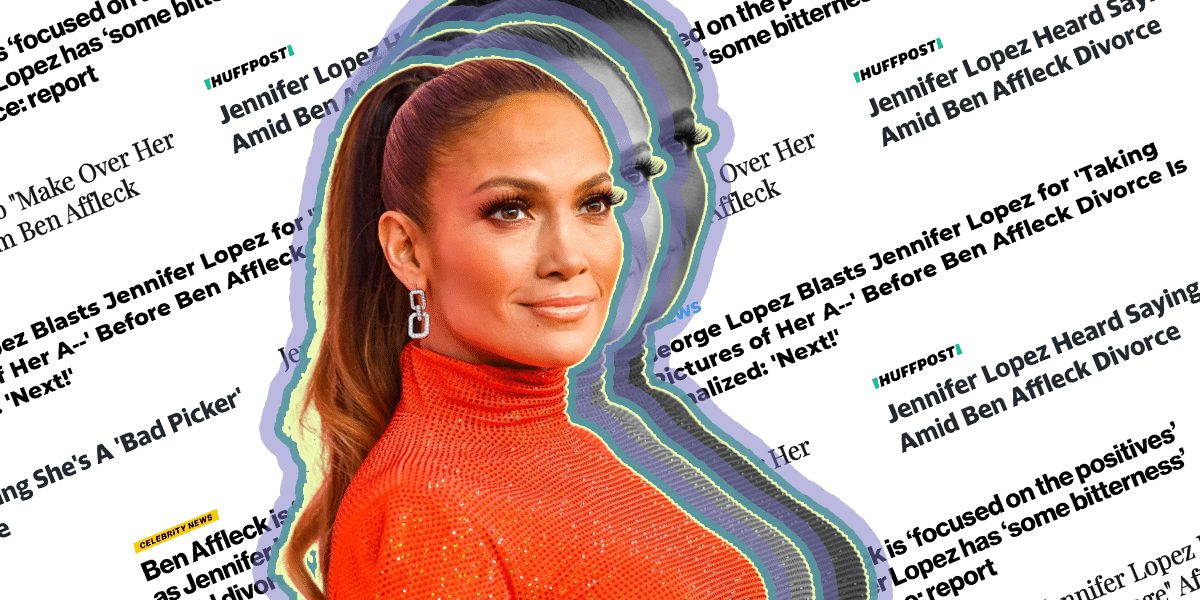It’s a tale as old as tabloid time: A Latina superstar splits from her partner, and the media rushes to solve the great mystery of “what went wrong.” Enter Jennifer Lopez – Hollywood’s perennial scapegoat for failed romances. With every breakup, the narrative sounds the same: “Too demanding,” “too high-maintenance,” or everyone’s favorite cliché, “too spicy.” But are JLo’s breakups really an anomaly, or is it just that she’s a strong, self-assured Latina woman who refuses to dim her light?
Let’s break it down: Jennifer Lopez has had her fair share of high-profile romances and breakups – Marc Anthony, Ben Affleck (the first time), Alex Rodriguez, and yes, Ben Affleck again (maybe this time with a plot twist?). And each time, the tabloids dissect her like she’s a new species under a microscope.
Yet, when was the last time you heard the media ponder whether Marc Anthony, her ex-husband who’s been married four times, was simply “too much” for love? Spoiler alert: you haven’t. Men like Marc Anthony, and let’s toss in Elon Musk and Larry King for good measure, get to be “hopeless romantics” or “complex geniuses” when their marriage count surpasses the number of seasons of Friends.
But too often when we discuss Jennifer Lopez’s relationship history (and especially JLo’s breakups), our tone is much more critical. We label her as the “difficult to love” diva whose standards are just too high. But why do we expect hers or those of any other woman, to be lower? JLo is a powerhouse in her own right – an actress, singer, dancer, and business mogul. Yet, she’s often framed as a problem to be solved rather than a person with her own desires and agency.
The double standard doesn’t stop there. Selena Gomez, another Latina caught in the public’s relentless gaze, faced similar scrutiny after her breakup with Justin Bieber. While Bieber was largely painted as the boyish heartthrob just figuring things out (even with a DUI or two), Selena got cast as the damaged, lovesick ex. “Is Selena Gomez still hung up on Justin?” magazines would ask, conveniently ignoring Bieber’s very public breakdowns and post-Selena relationship drama. What makes Selena’s heartbreak news and Justin’s a mere “rough patch”? It’s the “spicy Latina” trope – this time framing Gomez as someone who, by nature, couldn’t keep a man.
And let’s talk about the actual damage here. When the narrative continuously depicts strong women – particularly Latinas – as “hard to love,” it reinforces toxic stereotypes that diminish their complexity and humanity. These labels don’t just float in the air harmlessly. They seep into public perception, impacting how Latina women are viewed and treated both in media and in everyday life. Every time a Latina woman is publicly labeled as “spicy” or “difficult,” it subtly reinforces the notion that there is something inherently wrong with us, something that makes us less lovable, less deserving of compassion and understanding.
Meanwhile, men like Marc Anthony, George Clooney, or Brad Pitt (despite being credibly accused of abuse) are allowed to have complex love lives without their character being questioned at every turn. They’re “enigmatic,” “alluring,” or “just looking for the right one.” And when they do settle down (or settle down again), it’s a victory lap rather than a concession that maybe they really all worthy of love. Why is it that when women end a relationship, the narrative is all about how they’re the ones who must change, while men are considered masters of their own destiny, their wandering hearts a charming footnote in their illustrious biographies?
So, what’s the alternative? What if we started by doing something radical: treating women like, oh, I don’t know, human beings? Maybe the next time JLo’s walking down the aisle or wracking up more breakups, we could avoid blaming her Latinidad, her ambition, or her unwillingness to settle for less than she deserves. Instead of dissecting why women like her or Selena Gomez are “difficult,” let’s applaud them for knowing what they want and not being afraid to ask for it. Maybe we could acknowledge that the so-called “spice” is just passion, confidence, and, dare I say, self-respect.
And maybe we can start holding men to the same scrutiny. What if we asked why men like Marc Anthony get a pass for multiple marriages while women are shamed for high-profile splits? Or why is it considered “spicy” for a Latina woman to demand more but “commendable” when a man does the same?
It’s time to retire the outdated tropes and double standards that box in women, especially Latina women, as unlovable for simply being unapologetically themselves. In the end, JLo and all her fabulous counterparts don’t need our pity or approval – they’re busy being icons. But we sure could use a world that stops trying to make them the villains in their own love stories.

